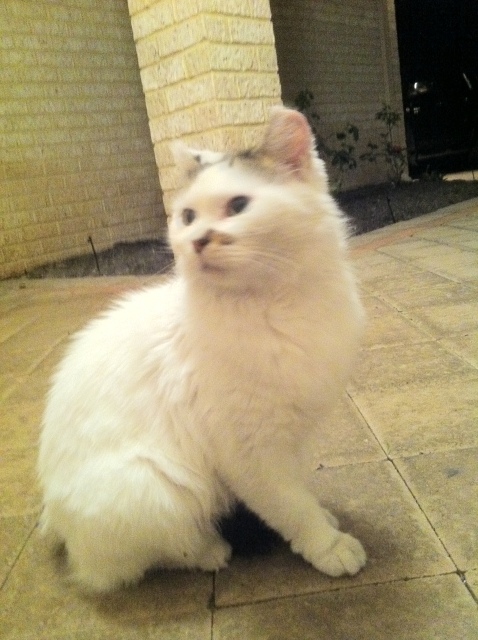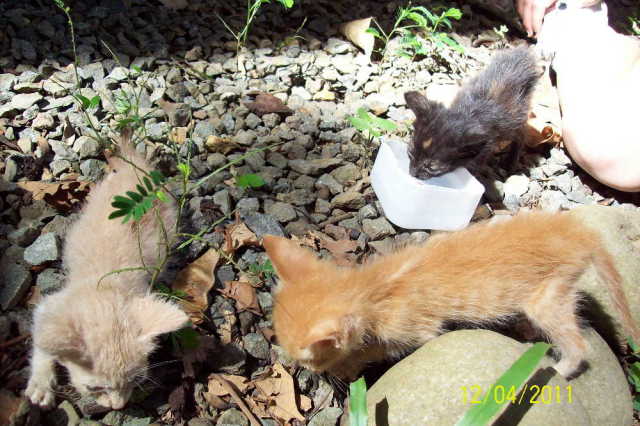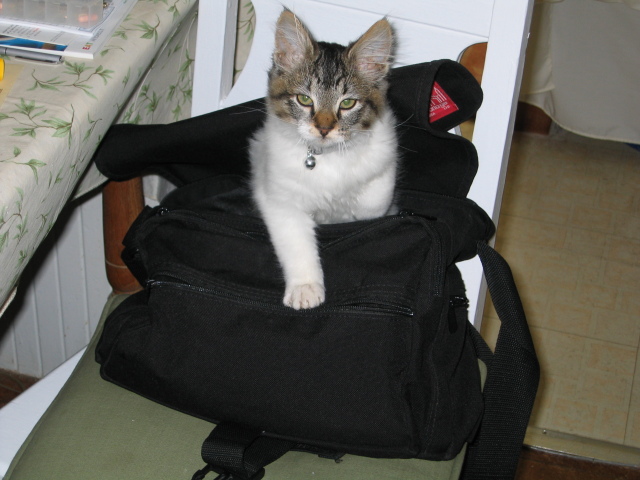QuestionQUESTION: We had 2 Tonkinese cats since they were 12 weeks old, they were litter mates and spent every day together for 6 1/2 yrs. Our male, Gatsby, developed cardiomyopathy advancing to heart failure. He was diagnosed and died within 24hrs. We are devastated and heart broken. Our female is having a very difficult time, she will not leave our sides, looking everywhere for her brother. It has been one week since we lost him. We also have 2 large dogs that are very use to the cats and they all got along. We think we may get another cat/kitten sometime in the future. The questions are; male/female, cat, kitten. Our female is a dominant cat, she was pretty much in charge of her brother. I am leaning towards another Tonkinese, but not ruling out a shelter kitty. Any thoughts or ideas?
Thank you
ANSWER: Patti,
I am sorry for your loss!!!!!!!!!!
I am assuming you have had the female checked for cardiomyopathy? I am not a vet, but I do know that some types of cardiomyopathy are genetic and some are due to a lack of certain nutrients (like taurine) in the diet.
Normally, cats are very practical creatures and tend not to miss a companion for more than a couple of weeks. Having the dogs still there will also help her get over the loss.
As to a new cat or kitten, older cats seem to de better with kittens than other older cats. The gender of the new cat/kitten really does not seem to make a difference once the new cat/kitten is neutered/spayed.
When you decide to get a new companion for your female it will be important how you introduce the new cat/kitten to the household. If you want, I can give you a pretty good introduction protocol that makes for a smoother transition to acceptance of the new cat/kitten.
Best regards... Norm.
---------- FOLLOW-UP ----------
QUESTION: Thank you for the information, please forward the introduction protocol, that would be very helpful. Gatsby's heart condition was genetic. We will have to watch Phoebe very closely. There is no cure only treatment which does not stop the disease process, there is a "cocktail" of medications they have to take.
We also have a cabin about 3 hrs away and would like to start taking her. Do you have any information on traveling with an older cat?
Thanks again
AnswerPatti,
Here is a technique we have used and had our pet buyers use for introducing an a new cat or kitten into a household with already established pets.
Start out your new cat or kitten in one room with a litter pan and water dish. Ideally, the one room should be a bedroom with yourself or another human resident. This accomplishes a couple of things. Your new cat or kitten will not be overwhelmed by its new surroundings and get "lost", and thusly will have no problem finding the litter pan #often kittens or rescue cats have been confined and are somewhat daunted by wide open spaces!#. You will feed the new cat or kitten in this room and keep the established cat out. It allows the new cat or kitten to bond with you or another human being and also build up some self assurance in its new surroundings since it will not have to compete for food or attention right away. Finally, it allows the new cat or kitten and the established cat to sniff each other under the door and get familiar with each others' scents.
After 3-5 days of being in its one room, it is time to let them meet each other. Be prepared for some posturing, some spitting and hissing, and the like. IGNORE IT! After a while, they should begin chasing each other about and still have the occasional hiss or spit as they get accustomed to each other. Cats tend to make a whole lot of noise and even loosen up some fur. Rarely will two cats hurt each other.
Once they are introduced, there are a couple of things you must remember. Do not separate them again, they will get along! Do not interfere in their "discussions" as they need to sort it out amongst themselves!
It does not hurt to give the established cat treats and extra attention after the new cat or kitten is introduced #yes, cats do get jealous!#.
A couple of things you may have to do are to feed them on separate dishes. Provide more than one litter pan in different areas of the household #as cats can be very territorial about litter pans#.
All, in all, this method seems to have had great success in the past and makes for a fairly smooth introduction. Please remember that they may make up immediately, or it may take a few weeks.
As to traveling with older cats #or any cats, for that matter#, we like to use a crate big enough to contain a small litter pan, that we stick in the back of the crate. Most cats do travel pretty well. They tend to complain for a bit, but do eventually curl up and go to sleep.
Make sure you have stuff with you that they are used to from home, like bedding, toys, exercise posts, litter pans, litter, food dishes and the like. Cats are very territorial and the more you can make the cabin seem familiar to the cat, the better.
I hope this is all helpful.
Best regards... Norm.

 giardia coccidia
Questionthin, spiny guard hair
QUESTION: I took
giardia coccidia
Questionthin, spiny guard hair
QUESTION: I took
 Pregnant cat and her to be kittens.
Question
Scarlett
Recently (May 2011) we adopted a stra
Pregnant cat and her to be kittens.
Question
Scarlett
Recently (May 2011) we adopted a stra
 cat vitamins; valerian feline;; NuVet health pets; wholistic Feline;
QuestionHi, I have a mostly indoor cat - sh
cat vitamins; valerian feline;; NuVet health pets; wholistic Feline;
QuestionHi, I have a mostly indoor cat - sh
 Orphaned baby kittens in the rainforest
Question
kittens
Hello,
My wife and I are volunteers in
Orphaned baby kittens in the rainforest
Question
kittens
Hello,
My wife and I are volunteers in
 Injured tip of ear / Follow up
QuestionBagBoy
QUESTION: My 7-month-old cat, Har
Injured tip of ear / Follow up
QuestionBagBoy
QUESTION: My 7-month-old cat, Har